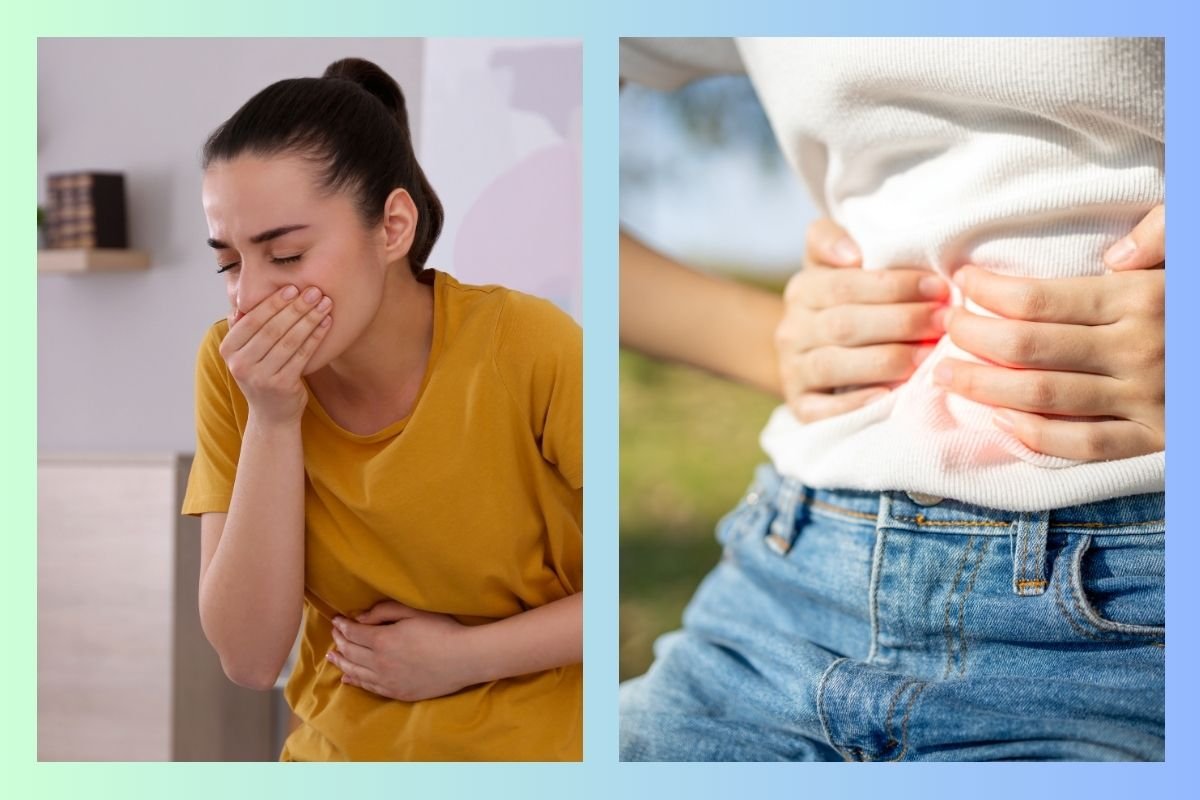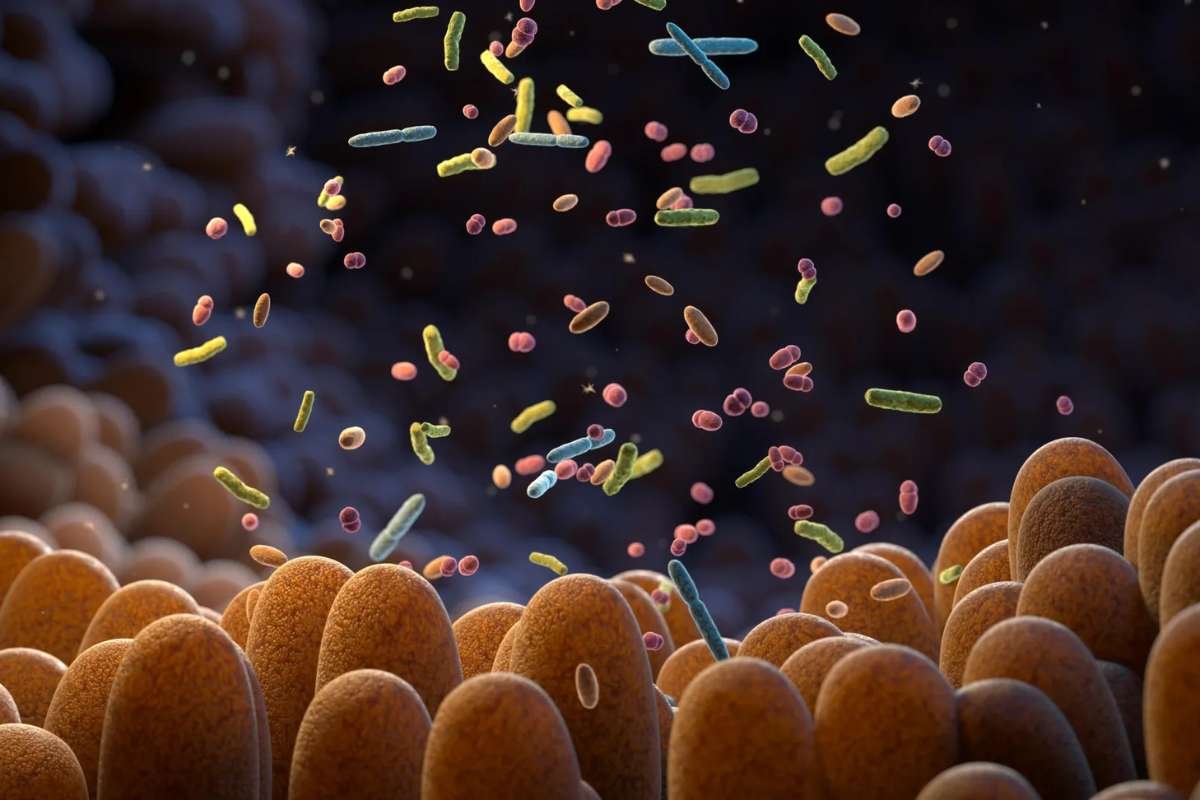Do you have a stomach ache? Then, you might be suffering from stomach flu or food poisoning. Although the symptoms of both are the same, unpleasant symptoms such as nausea, vomiting, diarrhea, and abdominal pain can create obstacles in your daily routine. The stomach flu and food poisoning have different causes, symptoms, and treatments.
This blog will help you understand stomach flu vs food poisoning and equip you to respond effectively if your loved ones fall ill.
What Is Stomach Flu?
Stomach Flu, also known as viral gastroenteritis, is an inflammation of the stomach and intestines caused by viral infection. This illness is contagious and can typically spread through direct contact with the person suffering from it. An individual can become prone to it if they consume contaminated water, or food or touch contaminated surfaces.
Common viruses that cause stomach flu

Norovirus : The most common cause of viral gastroenteritis is particularly in adults
Rotavirus : Common Among infants and young children; vaccinations can prevent this.
Adenovirus and Astrovirus: Less common but also cause gastroenteritis
Symptoms of Stomach Flu
- Nausea and vomiting
- Watery diarrhea
- Stomach cramps and abdominal pain
- Fever
- Muscle aches and headaches
- Fatigue
What Is Food Poisoning?
Food poisoning is caused by consuming food or water contaminated with harmful bacteria, parasites, viruses, or toxins. It is not contagious and affects only the person or group who consumes the contaminated food.
Common viruses of food poisoning
- Bacteria: Salmonella, E. coli, and Listeria are the most common culprits.
- Viruses: Norovirus and Hepatitis A can cause foodborne illnesses.
- Parasites: Parasites like Giardia and Toxoplasma can contaminate food and cause infections.
Symptoms of Food Poisoning
- Nausea and vomiting
- Abdominal pain and cramping
- Diarrhea, which may be watery or bloody
- Fever
- Weakness and fatigue
Causes: Stomach Flu Vs Food Poisoning
Let us understand the primary differences between stomach flu vs food poisoning.
| Cause | Stomach Flu | Food Poisoning |
| Cause of Illness | It is caused by a viral infection that affects the gastrointestinal tract | Contaminated food that contains harmful bacteria, viruses, parasites, or toxins. |
| Contagiousness | It is contagious and can spread through contact with persons or contaminated surfaces. | It is non-contagious and affects only those who consume the affected or contaminated foods. |
| The duration it takes to develop | They develop within 1-3 days after the exposure. | It starts suddenly or in some hours after you consume contaminated food. |
| Duration of Illness | It takes between 1 to 10 days depending on the virus | It takes a few hours or a few days to resolve depending upon the bacterial infection and how long it lasts in your body. |
Diagnosis Stomach Flu vs Food Poisoning
Determining if the illness is due to stomach flu or food poisoning can be challenging. A medical professional will check the patient’s symptoms and ask him about his food intake
and how much time the disease has affected him.
1. Stomach Flu Diagnosis:
- It is usually based on the symptoms and contact with a person who has a virus.
- A stool test should be done to identify the cause of the viral infection, especially in severe cases.
2. Food Poisoning Diagnosis:
- If food poisoning is detected, stool tests or blood tests may be used to identify bacteria or other pathogens.
Powerful Treatments for Stomach Flu and Food Poisoning Relief

- Hydration
- Rest
- Medications
- Diet
- Avoid Caffeine and Alcohol
Most cases of both stomach flu and food poisoning occur on their own without the need for extensive medical procedures. Below are some of the treatments for the same.
- Hydration: Both conditions can lead to dehydration due to vomiting or diarrhea. This can be reduced by drinking plenty of water, electrolyte solutions, or oral rehydration solutions.
- Rest: By taking lots of rest, one can recover faster in both conditions.
- Medications: Anti-diarrheal medications like loperamide (Imodium) or bismuth subsalicylate (Pepto-Bismol) may help relieve symptoms, but it is recommended to take advice from the doctor for the same. For food poisoning, antibiotics may be prescribed if a bacterial infection, like Salmonella or E. coli, is confirmed.
- Diet: Following a bland diet keeps your stomach free from discomfort. Drinking lots of water during this period can help to remove unwanted toxins from the body.
- Avoid Caffeine and Alcohol: Drinking coffee, caffeinated drinks, or alcohol can worsen and make the stomach more upset. Hence, they should be avoided.
How to prevent stomach flu and food poisoning?

1. Preventing Stomach Flu
- Wash hands frequently, especially after using the restroom and before meals.
- Try to avoid close contact with infected individuals.
- Disinfect surfaces that may be contaminated, especially in households or places where someone infected has visited your house.
2. Preventing Food Poisoning
- Cook food thoroughly, especially meats and eggs, to kill harmful bacteria.
- Store food properly at safe temperatures to prevent bacterial growth.
- Practice good hygiene while you prepare the food, and practice washing your hands, surfaces, and utensils whenever required.
When to Seek Medical Attention?
For both illnesses, one should seek medical attention when the below symptoms affect them in more severe conditions.
- Continuous vomiting or diarrhea that lasts for more than 2 days
- If an individual is having dry mouth, less urination, or frequent dizziness
- High fever (above 102°F/39°C)
- Stains of blood in stools
- Severe abdominal pain
- Extreme fatigue is also a symptom of severe dehydration or an infection.
Key Takeaway
We hope you have understood the symptoms, causes, and prevention tips for stomach flu vs food poisoning. By practicing good hygiene, eating proper food, and keeping track of your attention, one can reduce the discomfort during this period.







